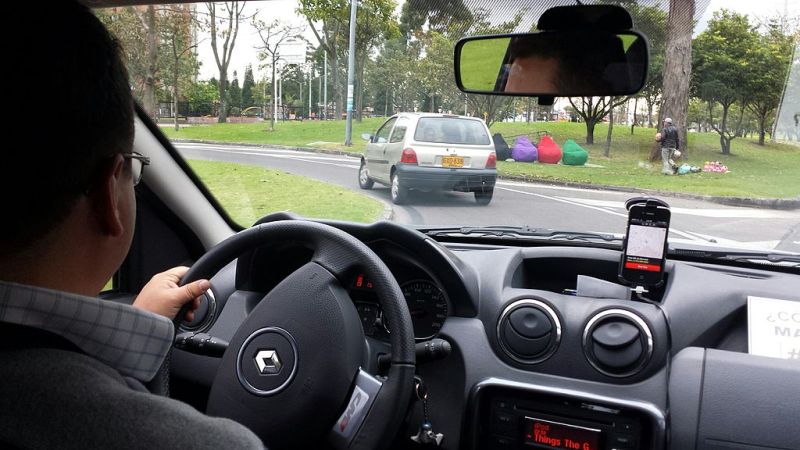If you live quite far away from Stanford (like me), you need to arrange flights to and from home, and thus, you need a way to get to the airport. Most people address this problem by using Uber. (Or, if you’ve decided to go on the Uber boycott because of the whole Trump thing, then Lyft.)
It starts off simply enough. You get in the car and exchange the normal pleasantries with your driver. “Hi.” “How are you doing today?” “Where are you heading?” “Sure is raining a lot.”
But once you’ve exhausted all the quaint, overused beginner questions, your driver will sometimes ramp up the intensity. This is what I like to call the Freeway Effect: once you’re off campus and get on the freeway (assuming, of course, that your driver manages to not miss the turn … ), shit hits the fan. Almost immediately, the conversation takes a personal turn. “Where’s your family from?” “What are your hobbies?” “Oh, you like writing? You like theatre?” “WELL, let me tell you about MY family … ”
And slowly, over the course of this 30-40 minute drive to SFO, you might get to know your driver quite well. Way back in December, as I was leaving for winter break, for example, my driver was quite spiritual. Her name was Anne. Halfway through the ride, I became so interested in our conversation that I actually started taking notes on my phone so I’d remember it later. Looking back, here is what I wrote:
- The Little Prince
- Talking about family
- Heritage
- Judaism
- “My prayer for you is that you have a supernatural encounter with the Holy Spirit. So ask God, ‘If you’re real, show me the Holy Spirit.’”
(Yes, those were in fact her parting words.)
Upon exiting the car, I immediately rated Anne five stars. Our conversation was deep, personal, enriching and struck the perfect balance between the fun and the peculiar. Not all Uber conversations are like this, of course — some are much stranger, much more controversial and some downright uncomfortable. (I recall a couple friends on their way to the women’s march having a driver who said, point blank, “Don’t women have enough rights already?”)
Anne made me think about my heritage and my relationship to my family. She asked about my hobbies and interests and drilled me on why I was so interested in the things I am interested in: why I came to Stanford, what I was hoping to get out of my education. She also connected my interests to her own family — turns out we actually had a lot in common.
Anne’s son plays music, just like I do, and she loves listening to movie scores like I do (she suggested I watch “The Little Prince”). She’s also Jewish. Upon asking for my last name, we dove into a discussion of Judaism and our heritage and how we both got our last names. As someone who hails from a not particularly religious family and who stopped going to Hebrew school soon after my bar mitzvah, I had admittedly forgotten the story about how “Bernstein” popped up in my family tree. My conversation with Anne made me ask my dad once I got home. (Turns out, my dad’s grandfather’s original name was Schtubel, but he took the last name of the guy in front of him so he’d get into the U.S. Impressive.)
Uber and Lyft and other such companies suck us into this fascinating kind of game — you’re in the car with a complete stranger and have to come up with some conversation, otherwise it’ll be a super awkward 45-minute car ride with no dialogue whatsoever, and you’ll just feel awful (and also probably get rated low — and if you’ve watched Black Mirror, you know how bad that can turn out).
So, if you’re a somewhat decent human and/or have some serious validation issues and need to be rated high otherwise you will literally implode, you’ll attempt to make conversation and play the game. And sometimes your Uber driver will play too, forcing you to ask yourself questions about how you got your last name and how your life experiences led you here — and allowing you to find answers to questions that you’d forgotten about, or had never really crossed your mind.
And having a deep, even intellectual, conversation with a complete stranger is interesting but also really weird. On one hand, you literally just met this person and will most likely never see them again, so why bother putting effort into the conversation?
On the other hand, you literally just met this person and will most likely never see them again, so why not go for it and have a real, honest conversation with them?
Of course, by participating in the Uber/Lyft game, you also come across the weirdos. You probably know the type. The ones who tell you and your friends, who are sitting quite uncomfortably in the backseat, all about how his parents died within a week of each other, which led to him inheriting an absurd amount of money, and how he’s now a millionaire. One such driver might also list off every house he’s ever lived in and their respective market values. (Nota bene to any prospective or current Uber/Lyft drivers: this will make your passengers quite uncomfortable! Please do not do this!)
But in the end, I think it’s a chance I’m willing to take. I’m willing to play the game. While I could just take an uneventful trip to SFO each time I go home, I think I’d much rather take the risk of getting to know my Uber driver and maybe learn a few things on the way.
Contact Matt Bernstein at mbernstein ‘at’ stanford.edu.
